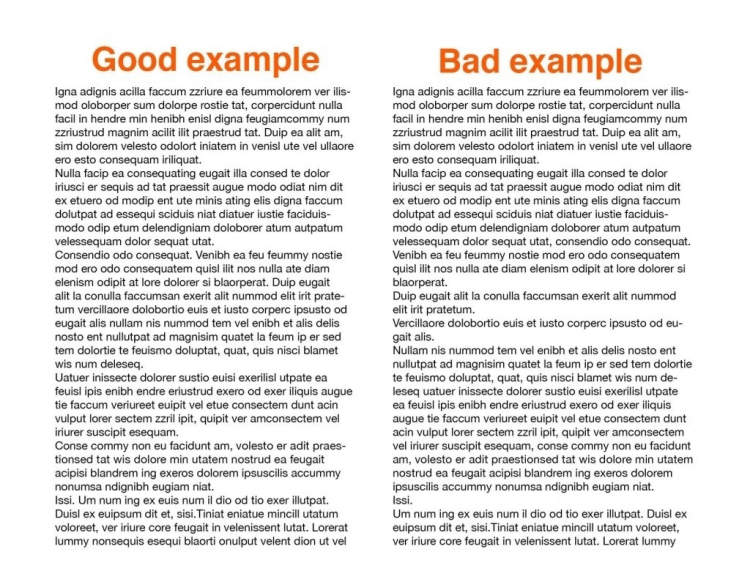Scholarship essays play a crucial role in securing financial aid for your education. They provide an opportunity to showcase your skills, experiences, and aspirations to the selection committee. However, writing a winning scholarship essay can be a daunting task. In this article, we will explore five essential tips that will help you create compelling scholarship essays that increase your chances of being awarded that coveted scholarship.
First, it is vital to understand the prompt and requirements of each scholarship program. Each scholarship has specific criteria and objectives that you must address in your essay. Take the time to read and comprehend the prompt thoroughly before you start writing. This will ensure that you tailor your essay to the specific scholarship, showcasing how you meet their criteria and align with their mission.
5 Tips for Writing Winning Scholarship Essays
When it comes to applying for scholarships, one of the most important components of your application is the essay. Scholarship essays give you the opportunity to show your unique qualities, experiences, and goals to the scholarship committee. To help you craft a winning essay, here are five essential tips:
1. Understand the Prompt
Before you start writing, carefully read and understand the essay prompt. Pay attention to the specific guidelines and requirements provided by the scholarship committee. Make sure you address all aspects of the prompt and stay focused on the main theme.
2. Brainstorm and Outline
Take some time to brainstorm ideas and experiences that align with the prompt. Think about your personal achievements, challenges you have overcome, and your goals for the future. Once you have a list of ideas, create an outline to organize your thoughts and ensure a logical flow in your essay.
3. Tell Your Story
Use your essay as an opportunity to tell your unique story. Share personal anecdotes and experiences that highlight your strengths and values. Be authentic and avoid generic statements. Show the scholarship committee who you are and why you deserve to be awarded the scholarship.
4. Be Concise and Clear
Keep your essay concise and to the point. Scholarship committees receive numerous applications, so it is important to make your essay easy to read and understand. Avoid unnecessary repetition and stay focused on the main ideas. Use clear and straightforward language to convey your message effectively.
5. Edit and Proofread
Before submitting your essay, take the time to edit and proofread it. Check for grammar and spelling errors, as well as clarity and coherence. Make sure your essay flows smoothly and that your ideas are well-organized. If possible, have someone else read your essay for feedback and suggestions.
By following these five tips, you can increase your chances of writing a winning scholarship essay. Remember to start early, give yourself enough time to brainstorm and revise, and make sure your essay reflects your true self. Good luck!
Understanding the Prompt

When it comes to writing winning scholarship essays, understanding the prompt is crucial. The prompt serves as your guide and provides essential information on what the scholarship committee is looking for in an essay. Here are some key points to help you understand the prompt and increase your chances of success:
1. Read and Analyze the Prompt Carefully
First and foremost, take the time to thoroughly read and analyze the prompt. Pay attention to the specific requirements, questions, or instructions provided. Understanding the prompt will help you tailor your essay to address the scholarship committee’s expectations.
2. Identify the Main Theme or Message
Try to identify the main theme or message conveyed in the prompt. It could be centered around personal achievements, overcoming challenges, future goals, or a specific subject or industry. Knowing the main theme will help you focus your essay and ensure that your content aligns with the scholarship’s purpose.
3. Highlight Keywords and Key Phrases
Pay attention to any keywords or key phrases present in the prompt. These words often indicate what the committee is prioritizing or looking for in applicants. For example, if the prompt mentions “leadership” or “community involvement,” it suggests that these aspects will be important evaluation criteria.
4. Brainstorm Ideas and Create an Outline
Once you understand the prompt, start brainstorming ideas that relate to the theme or message. Consider your own experiences, achievements, or aspirations and how they align with the scholarship’s goals. Create an outline to organize your thoughts and ensure a logical flow in your essay.
5. Address all Components of the Prompt
Make sure your essay addresses all components of the prompt. If there are multiple questions or instructions, ensure that you answer each one concisely and directly. Failing to address any part of the prompt may result in your essay being disqualified.
Understanding the prompt is the first step towards writing a winning scholarship essay. By carefully analyzing and addressing the prompt’s requirements and expectations, you can increase your chances of standing out and securing the scholarship you deserve.
Highlighting Your Achievements and Goals
One of the most important aspects of writing a winning scholarship essay is effectively highlighting your achievements and goals.
1. Start with a strong introduction
The first paragraph of your essay should grab the reader’s attention and provide a brief overview of your achievements and goals. Consider using a compelling anecdote or a powerful statement to captivate the reader.
2. Showcase your accomplishments
List your achievements in a concise and organized manner. Highlight any awards, honors, or recognitions you have received. Use bullet points to make it visually appealing and easy to read.
- Received the Student of the Year Award for academic excellence
- Volunteered at a local community center for two years
- Participated in various leadership roles in school clubs
3. Demonstrate your goals and ambitions
Clearly articulate your future goals and how you plan to achieve them. Show passion and enthusiasm for your chosen field of study or career path.
For example, mention your desire to pursue a degree in environmental science to tackle pressing environmental issues and contribute towards a sustainable future.
4. Provide concrete examples
Support your achievements and goals with specific examples or experiences. Describe how you have already taken steps towards achieving your goals or how your past experiences have shaped your aspirations.
5. Tailor your essay to the scholarship
Customize your essay to match the values and objectives of the scholarship organization. Research the scholarship provider and incorporate their mission statement or core values into your essay. This shows your genuine interest and dedication to the scholarship.
In conclusion, highlighting your achievements and goals is crucial for writing a winning scholarship essay. By effectively conveying your accomplishments, demonstrating your ambitions, providing concrete examples, and tailoring your essay to the scholarship, you increase your chances of standing out and securing the scholarship funding you need to achieve your dreams.
Captivating the Reader with Your Story
When it comes to writing winning scholarship essays, capturing the attention of the readers is crucial. Your story should be compelling, engaging, and leave a lasting impression. Here are five tips to help you captivate the reader with your scholarship essay:
Start with a captivating introduction
The introduction is your opportunity to hook the reader from the very beginning. Use a powerful opening statement, an interesting anecdote, or a thought-provoking question to grab their attention. A captivating introduction will make the reader want to continue reading.
Be authentic and genuine
The key to captivating the reader is to be authentic and genuine in your writing. Share your personal experiences, thoughts, and emotions. Avoid writing what you think the readers want to hear; instead, focus on expressing your true self. This will make your story unique and relatable.
Use vivid descriptions and imagery
Paint a vivid picture with your words. Use descriptive language to create a strong imagery that will transport the reader into your story. Engage the senses by describing the sights, sounds, smells, tastes, and feelings associated with your experiences. This will make your story more vibrant and memorable.
Showcase personal growth and lessons learned
A captivating story is not just about the events that happened; it’s also about the personal growth and lessons learned along the way. Reflect on how the experiences you share have shaped you as a person. Discuss the challenges you’ve faced and the lessons you’ve gained. This will add depth and meaning to your story.
End with a strong conclusion
Your conclusion should leave a lasting impression on the reader. Summarize the main points of your story and the impact it has had on you. End with a thought-provoking statement, a call to action, or a powerful quote. A strong conclusion will make your essay memorable and make the reader want to support your scholarship application.
Presenting a Strong Thesis Statement
A thesis statement is a crucial component of any academic or persuasive writing, including scholarship essays. It serves as a concise summary of the main point or argument you want to make in your essay. Crafting a strong thesis statement not only helps you stay focused and organized, but it also enhances the overall quality and persuasiveness of your writing. Here are five essential tips to help you present a strong thesis statement that will make your scholarship essays stand out:
- Be Clear and Specific:
- Take a Stance:
- Make it Arguable:
- Reflect the Essay’s Scope:
- Revise and Refine:
Ensure your thesis statement is clear, concise, and specific. State your main argument or idea in a straightforward manner to guide the reader throughout your essay.
A strong thesis statement takes a clear stance on the topic or issue being discussed. Avoid vague statements and express your position confidently to engage the reader from the start.
Avoid stating obvious facts or truisms in your thesis statement. Instead, focus on presenting an argument or claim that can be debated or challenged. This will demonstrate critical thinking and analytical skills.
Your thesis statement should reflect the scope of your essay. It should encompass the main points you plan to discuss and provide an overview of the supporting evidence you will present.
Don’t settle for your initial thesis statement. Take the time to revise and refine it as you develop your essay. Make sure it accurately represents the content and direction of your writing.
By following these tips, you can create a strong thesis statement that will set the tone for your scholarship essays and impress the readers. Remember, a well-crafted thesis statement is the foundation of a successful essay that can help you secure the scholarship you deserve.
Structuring Your Essay Effectively
Writing a winning scholarship essay requires careful planning and organization. By effectively structuring your essay, you can ensure that your ideas are presented in a clear and logical manner, increasing your chances of impressing the scholarship committee. Here are five tips to help you structure your essay effectively:
- Introduction: Start your essay with a compelling introduction to grab the reader’s attention. Clearly state the purpose of the essay and mention the scholarship you are applying for. Consider using an engaging anecdote, a thought-provoking question, or a relevant quote to make your introduction more captivating.
- Main Body Paragraphs: Divide the main body of your essay into several paragraphs, each focusing on a distinct idea or argument. Start each paragraph with a topic sentence that introduces the main point you will discuss. Use evidence, examples, and references to support your arguments and make them more persuasive. Ensure that each paragraph flows smoothly into the next, maintaining a coherent structure.
- Use Transitional Words: To enhance the flow and cohesiveness of your essay, make use of transitional words and phrases. These words act as signposts, guiding the reader through your essay and highlighting the connections between different ideas. Examples of transitional words include “however,” “in addition,” “moreover,” “on the other hand,” and “therefore.”
- Conclusion: End your essay with a strong and memorable conclusion. Summarize the main points discussed in the essay and restate the importance of your arguments. Avoid introducing new information in the conclusion. Leave the reader with a lasting impression of your essay by ending on a thought-provoking or inspiring note.
- Proofread and Edit: After completing your essay, take the time to proofread and edit it thoroughly. Check for grammatical errors, spelling mistakes, and awkward sentence constructions. Ensure that your essay is well-organized and coherent. Consider asking a trusted friend or mentor to review your essay as well, as fresh eyes can often catch mistakes or offer valuable suggestions for improvement.
By following these tips, you can structure your scholarship essay effectively, making it more compelling and persuasive. Remember to tailor your essay to the specific scholarship you are applying for, showcasing your unique qualities and experiences. Good luck with your scholarship application!
Conclusion
In conclusion, writing winning scholarship essays requires careful planning and execution. By following these five tips, aspiring scholarship applicants can significantly increase their chances of standing out from the competition and securing the financial support they need to pursue their educational goals.
Firstly, it is crucial to thoroughly understand the requirements and expectations of the scholarship committee. By closely analyzing the prompts and guidelines provided, applicants can tailor their essays to meet the specific criteria. Secondly, crafting a compelling and unique narrative is essential. Sharing personal stories, experiences, and aspirations can make the essay more engaging and leave a lasting impression on the readers. Additionally, paying attention to grammar, spelling, and structure is vital to ensure a polished and professional submission. Moreover, showcasing genuine passion and enthusiasm for the chosen field of study can demonstrate a strong commitment to academic success. Lastly, seeking feedback from mentors, teachers, or peers can greatly enhance the essay’s quality and help identify areas for improvement.




